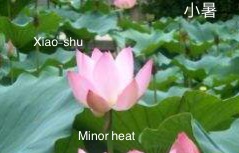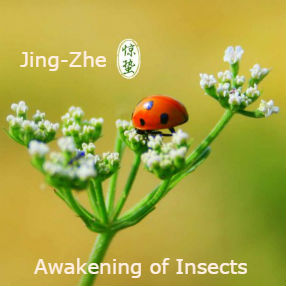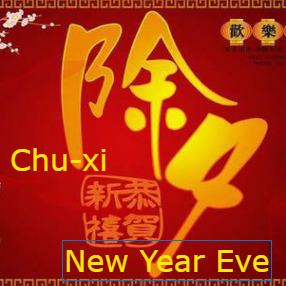
Xiao-shu (noun) 小暑 (Chinese): Minor heat (11th solar term) literally in Chinese “xiao” 小 = small. “shu” 暑 = heat.
Example:
In the ancient Chinese agriculture calendar, Xiao-shu is the 11th solar term out of the 24 solar terms in a year. Xiao-shu begins when the Sun reaches the celestial longitude of 105° and ends when it reaches the longitude of 120°. Xiao-shu refers in particular to the day when the Sun is exactly at the celestial longitude of 105°. In the Gregorian calendar, xiao-shu usually begins around 7 July and ends around 22 July (23 July East Asia time). Xiao-shu is the beginning of the summer heat season. Each year Xiao-shu is divided into three periods of climates and 5 days for each period. There is an old saying about Xiao-shu that during the first climate period 温风至; there is a heat wave and no more cooling wind, in the second climate period 蟋蟀居宇; crickets leave fields and stay near the houses, and the third climate period 鹰始鸷; hawks flying high in the sky to avoid the heat from the earth.
Since ancient times, Xiao-shu has been a solar term for agricultural purposes in the lunar calendar. Xiao-shu is still remembered and celebrated as a Chinese traditional festival.


